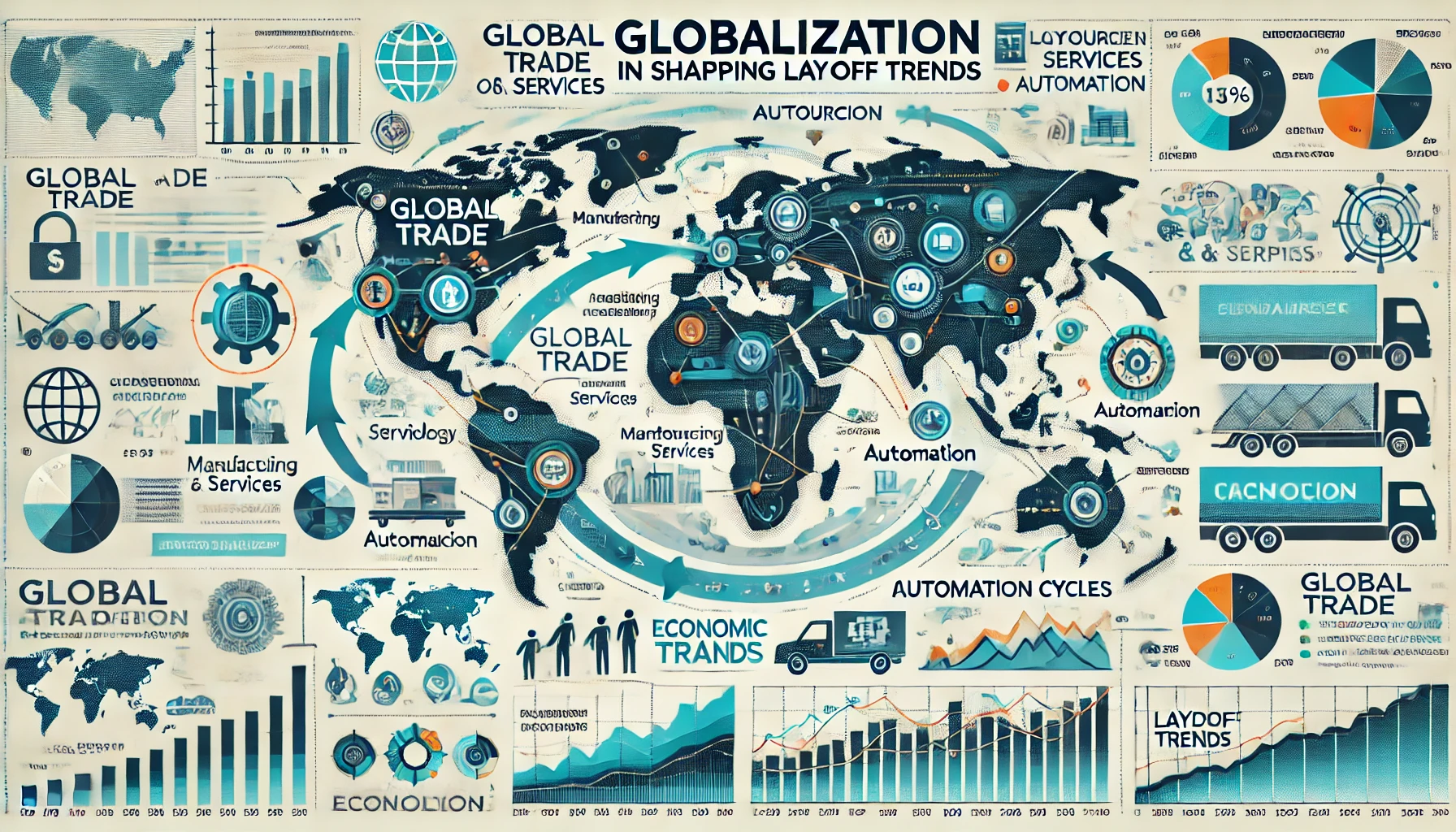In today’s interconnected world, the impact of globalization on various economic sectors cannot be understated. As businesses expand their operations across borders, they are met with a complex set of challenges and opportunities that significantly influence employment patterns. One of the most noticeable effects of this global integration is the trend of layoffs, which has become a pressing concern for workers and policymakers alike. This article delves into how globalization shapes layoff trends, examining the factors at play and offering insights into what this means for the workforce of the future.
The Impact of Globalization on Employment
Globalization refers to the process by which businesses and other organizations develop international influence or start operating on an international scale. This phenomenon has been a double-edged sword for employment. On one hand, it has created millions of jobs by opening new markets and facilitating the exchange of goods, services, and technology. On the other hand, it has also led to significant job displacement due to the shifting of production to countries with lower labor costs.
Key Factors Influencing Layoffs Due to Globalization:
- Outsourcing and Offshoring: Companies often move their manufacturing or service operations to countries where labor is cheaper. This practice, known as outsourcing or offshoring, can result in massive layoffs in the home country.
- Technological Advancements: Globalization accelerates technological innovation. While this leads to increased productivity, it can also render certain jobs obsolete, leading to layoffs.
- Economic Shifts: As economies integrate, fluctuations in one region can have ripple effects worldwide. For instance, an economic downturn in a major market can lead to reduced demand and subsequent layoffs in interconnected economies.
- Trade Policies and Agreements: International trade agreements can open markets and create jobs, but they can also expose domestic industries to fierce competition, sometimes leading to layoffs as companies struggle to stay competitive.
The Domino Effect of Global Layoffs
The interconnected nature of the global economy means that layoffs in one part of the world can have far-reaching consequences. For example, when a multinational corporation closes a factory in one country, it doesn’t just affect the local workers; it can also disrupt supply chains, affecting jobs in other countries. This domino effect underscores the complexity of globalization’s impact on employment.
Case Studies: Real-World Examples
To understand the nuances of globalization’s impact on layoffs, let’s look at a few real-world examples:
- The Textile Industry: The shift of textile manufacturing from Western countries to countries like China and Bangladesh has led to significant job losses in the former. Workers in the West have had to adapt to the new economic reality, often requiring retraining for different industries.
- The Automotive Industry: The global automotive industry has seen both expansion and contraction due to globalization. While companies like Ford and General Motors have expanded their markets globally, they have also closed plants in regions where production costs are high, leading to layoffs.
Understanding the role of globalization in shaping layoff trends is crucial for policymakers, business leaders, and workers. Global economic integration has created a dynamic job market where adaptability is key. As industries evolve and technology advances, the workforce must be prepared to navigate these changes. Embracing lifelong learning and staying abreast of industry trends can help workers remain competitive in the global job market. Moreover, businesses must balance cost-cutting measures with corporate social responsibility to mitigate the adverse effects of layoffs.
The Future of Work in a Globalized World
As we look to the future, it’s clear that globalization will continue to shape layoff trends. However, there are steps that can be taken to mitigate its negative impact:
- Investment in Education and Training: Governments and businesses need to invest in education and training programs that prepare workers for the jobs of the future. This includes upskilling and reskilling initiatives that help workers transition to new roles.
- Support for Affected Workers: Policies that provide support for workers affected by layoffs, such as unemployment benefits, job placement services, and retraining programs, are essential.
- Corporate Responsibility: Companies should adopt responsible business practices that consider the well-being of their employees. This includes offering fair severance packages and support for retraining.
Conclusion
Globalization is an undeniable force in today’s economy, bringing both opportunities and challenges. While it has led to significant job creation, it has also resulted in layoffs and job displacement. Understanding the role of globalization in shaping layoff trends is essential for navigating this complex landscape. By investing in education, supporting affected workers, and promoting corporate responsibility, we can create a more resilient and adaptable workforce ready to meet the demands of a globalized world.
In conclusion, the impact of globalization on employment is multifaceted and profound. By staying informed and proactive, workers, businesses, and policymakers can better navigate the challenges and opportunities presented by this ever-evolving economic phenomenon.

